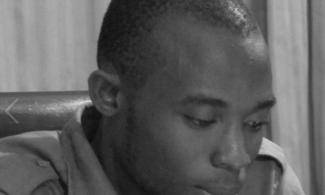
I have always seen Boko Haram as a real conflict that emerged from our cultural flaws and thrived on our institutional lapses. It's not a conspiracy, it's a reality to which many of us are firsthand witnesses.
If the past administration took the Boko Haram for granted, making the disaster a justification for grand public treasury theft and even in service of a refusal to correct perception of tacit support for the group in conspiracy theories promoted to gullible and polarised citizens, the Muhammadu Buhari-led administration, despite its controversial handling of the economy, clearly takes its predecessors as a bad model for conflict management.

A prominent politician once told me that the war on terror failed under former President Goodluck Jonathan because, aside from our popular ridiculing of the man as uncharismatic and clueless, he was "afraid of his service chiefs." This is interesting considering the involvement of heads of our security institutions in one of the biggest heists in the history of Nigeria, diverting funds voted for counterterrorism to their private causes and personal accounts. The region was thus allowed to be destroyed by the Boko Haram because the evil benefits these morally irresponsible public officers.
Quite unfortunate was the politicisation of counterterrorism, with the President even seeking to make it a Muslim agenda against his Presidency while conspiracy theorists in the north, indoctrinated by former Governor Murtala Nyako and even Malam Nasir El-Rufai, portrayed the spate of killings as a covert operation of some Christian organisations or personalities eager to decimate the dominating north and its politically overpowered Muslims.
I have always seen Boko Haram as a real conflict that emerged from our cultural flaws and thrived on our institutional lapses. It's not a conspiracy, it's a reality to which many of us are firsthand witnesses.
I campaigned against Jonathan possessed by rage over his deliberate refusal to serve as a unifying figure at that critical point of our polarisation and distrust, for even making policy statements as he jumped from one pulpit to another, home and Israel.
I don't think the past administration sponsored the Boko Haram, they just let it happen because of the billions allocated to our security agencies by the tricked and paranoid dispensation. Yet, the past few days, with the liberations of many towns previously sacked or occupied by the insurgents as announced by the Nigerian troops, internally displaced persons have been reunited with the only place they call homes, giving another chance for them to breathe freedom again, and rebuild their lives.
The recent images of happy "returnees" posing for selfies with their liberators, the soldiers, were the most beautiful symbols out of Nigeria since 2009, the year the terrorist cult became an uncomfortable menace from a carelessly managed face-off with the security operations in Maiduguri.
The liberators are the same soldiers we once derided for their "tactical manoeuvres". What has changed? Leadership. Responsible and effective leadership, not one that diverted the resources meant for the welfare of these rank-and-file soldiers to causes other than counterterrorism.
May God save us from us!
@gimbakakanda on Twitter